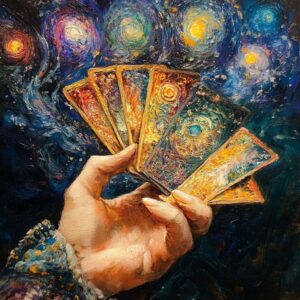
The Tarot cards are intertwined with numerology; each card, whether in the Major Arcana or the Minor Arcana, has a number that represents its abilities and challenges.
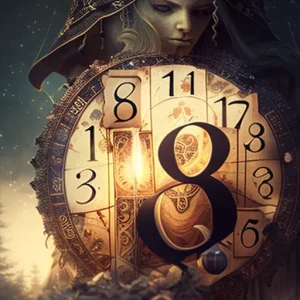
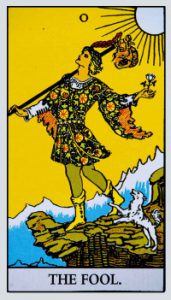
The Fool card is symbolized by the number 0, which signifies completeness. It represents infinity and eternity. The number is depicted by the Ouroboros, the serpent eating its own tail, symbolizing that there is no beginning and no end. In everyday terms, the expression "zero" can reduce a person to nothing, whereas quantitatively, adding a 0 to 1 magnifies and increases it. In Tarot, the quality of the number either diminishes or amplifies a person based on their choice. Viewing the number 0 is like looking into a mirror; it is a spiritual concept that changes meanings. The 0 exists before the start of the process, which in numerology begins with the number 1. The Fool represents both everything and nothing; it is both the beginning and the end.
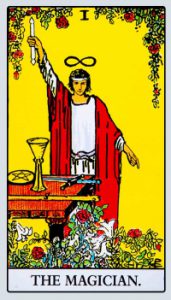
The Magician card is symbolized by the number 1. The geometric shape representing the number 1 is a circle with a point in its center. The circle signifies the universe, and the point represents divinity and the beginning. The point is equidistant from the circumference, symbolizing balance and the source of life. The number represents the masculine, active principle. God is the source, and thus the number one symbolizes Him. Jung argued that the number 1 belongs to "uniting symbols" that bring synthesis and balance between opposites. The number 1 is a symbol of seed and beginning, and psychologically represents the conscious mind. It is the place where identity is revealed. Like the Magician card, the number 1 symbolizes divinity, creation, beginning, individuality, renewal, primacy, breakthrough, originality, initiative, vigor, determination, choice, objectivity, leadership ability, independence, organization, and management.
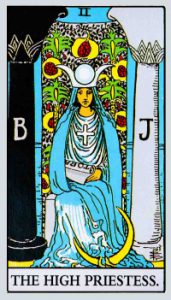
The High Priestess card is symbolized by the number 2. This number represents opposites, the duality of life. The number 2 symbolizes the Moon, and is negative, passive, and feminine. The number 2 encompasses conflict, opposition, instability, dependence, and duality. It holds a mystery that blends opposites and also provides balance. If the man represents potential power, then the woman is the vessel for its realization. The feminine role is to filter, enhance, refine, and contain, and to listen. Similar to the High Priestess, the number 2 symbolizes the subconscious, the subconscious mind, a reservoir filled with emotions, thoughts, and past experiences, and perceives the world through the five senses and intuition.
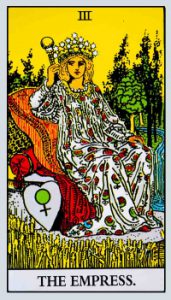
The Empress card is symbolized by the number 3. While the number 1 represents the father and the number 2 represents the mother, the number 3 symbolizes the child that is born. The planet associated with the number 3 is Jupiter, which signifies expansion and growth. Achieving balance involves the merging of 1 and 2 and the birth of 3. Similar to the Empress, people associated with the number 3 are imaginative, generous, talented, enthusiastic, and optimistic. They are willing to give without expecting anything in return and have not forgotten the child within them.
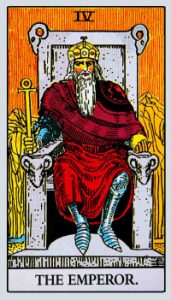
The Emperor card is symbolized by the number 4, which represents the connection with the earth and home. In the divine name, the number four corresponds to letters with both masculine and feminine energies. According to Pythagoras, the number 4 signifies completeness expressed through stability and the revelation of thought. The number 4 is associated with the planet Uranus, but before Uranus was discovered, it was linked with the Sun as its opposite number, representing a constructive rather than a destructive force. Like the Emperor card, people associated with the number 4 are balanced, home and family-oriented, hardworking, practical, and realistic. They demand from their surroundings what they expect from themselves. They are organized, obedient, efficient, attentive to details, materialistic, and possess great patience, tolerance, and self-discipline.
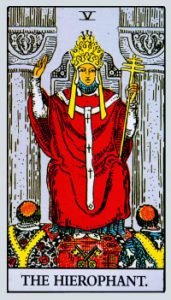
The Hierophant card is symbolized by the number 5. The geometric shape associated with the number 5 is the pentagram, a star with five points, representing a person standing with both feet on the ground and their head in the sky. This symbolizes control over material desires, but when the head is facing the ground, the desires prevail. Indeed, the card opposed to the Hierophant is the Devil card. The number 5 represents adaptability, adjustment, and training. It signifies self-communication with one's inner self, communication with others, nature, and God.
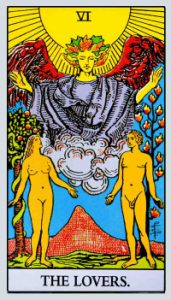
The Lovers card is symbolized by the number 6, represented by the Star of David, which consists of two triangles in perfect balance. This symbol expresses masculine strength and determination combined with feminine softness and persuasive ability, representing a union between material and spiritual realms. It is the number of creation, indicating unity, combinations, harmony, and happiness. Like the Lovers card, people associated with the number 6 are talented, stable, helpful to others, home and family-oriented, reliable, and value social life and friendships. Processing information forms a basis for their thinking, so it is important not to overwhelm them.
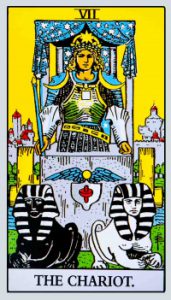
The Chariot card is symbolized by the number 7. After a person has ascended the energetic spiral of life, and has established a home, family, and love, they are ready for spiritual pursuits. The number 7 signifies completeness, skill, victory, and determination to achieve life goals. Like the Chariot card, individuals associated with the number 7 are full of faith, wisdom, introspective thinking, and analytical ability. They prefer to work alone to achieve their goals and seek truth. It is important for them to develop their inner self and achieve their life objectives.
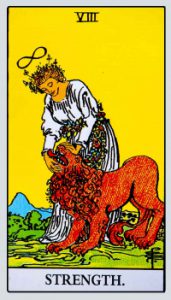
The Strength card is symbolized by the number 8. The geometric shape of the number resembles the infinity symbol, its movement is spiral and continuous. It represents cosmic balance, equilibrium, evolution, development, and personal change. The two circles that make up the number 8 are the lower circle, symbolizing matter, and the upper circle, symbolizing spirit, representing both death and eternity. This number signifies extremes between freedom and spiritual or material limitation, achievements, and great responsibility. Like the Strength card, people associated with the number 8 are aware of their limitations and the obstacles they face, reaping what they have sown. They are efficient, consistent, and practical, with inner strength, depth, and patience, taking responsibility for their lives. They achieve their goals but must learn to balance between matter and spirit.
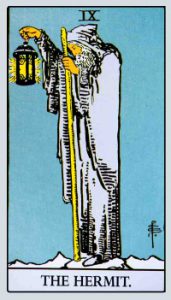
The Hermit card is symbolized by the number 9, which represents a perfect picture of the material, emotional, and spiritual worlds. A person breathes approximately 18 (2×9) times per minute, and the heart beats 72 (8×9) times per minute. In Greek mythology, there were 9 Muses connected to the nine steps a person must take to achieve perfection, and in Kabbalah, 72 combinations bring life. The number 9 represents enlightenment, power, and vital energy. Like the Hermit card, people associated with the number 9 are filled with universal love, generosity, justice, and volunteerism. They are kind, imaginative, self-confident, and have a strong need to dedicate themselves to serving others. It is important for them to complete processes they have started with patience and determination.
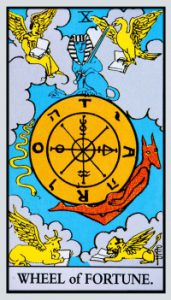
The Wheel of Fortune card is symbolized by the number 10. The number 1 represents the masculine, active principle, symbolizing seed and beginnings, creation, primacy, initiative, energy, and determination. People associated with the number 1 are leaders, pioneers, ambitious, resolute, and independent. The 0 next to it amplifies all these qualities; the number 10 signifies a return to unity and spiritual achievements. It contains both the masculine seed, represented by 1, and the feminine egg, represented by 0. Thus, one and zero together create completeness. After reaching the number 9, a cycle ends, and a new action begins, but at a higher level and with increased intensity. Like in the Wheel of Fortune card, one arrives at the insight that internal change will lead to external change.
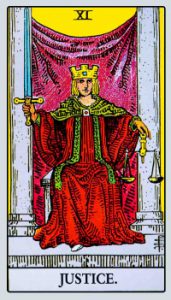
The Justice card is symbolized by the number 11. This is a very emotional and intuitive number. Unlike other numbers, 11 is not reduced to its lowest form, as it represents the combined energy of two 1s, embodying the higher energy of the great teacher, guiding by personal example. When one lives in the high vibration of this number, the power is limitless. People associated with the number 11 have a high spiritual potential. They are idealists, and their prominent trait is the inner power of manifestation, which allows them to provide knowledge and inspiration to humanity. Individuals with the number 11 possess strong willpower and determination, are resolute, and have leadership abilities. In situations where a person does not realize the high vibration of this number, they may be dependent, prone to extreme moods, and not attuned to their intuition. Like in the Justice card, they know how to eliminate the unnecessary from their lives.
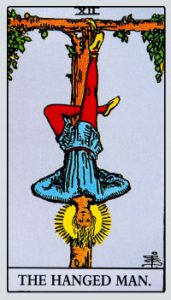
The Hanged Man card is symbolized by the number 12. This number encompasses the vibration of the number 1, which represents the masculine, active principle—symbolizing seed and beginning, creation, originality, initiative, energy, determination, leadership, pioneering spirit, ambition, and individuality. It also contains the vibration of the number 2, which is negative, passive, and feminine. The feminine role is to filter, improve, refine, soften, contain, and listen. People associated with the number 2 are intuitive, sensitive, nurturing, able to balance opposites, good at teamwork, persuasive, gentle, and accommodating. The number 12 integrates both the masculine (1) and feminine (2) principles, creating the child, represented by the number 3. People with the number 12 are imaginative, broad-minded, talented, enthusiastic, and optimistic. They are educated, hold degrees, and are fortunate. Like in the Hermit card, these individuals engage in creation through the combination of active and passive principles. The number 12 is emotional, symbolizing completion, closeness, and enlightenment. From a karmic perspective, people with the number 12 carry challenges from previous lifetimes, such as relational difficulties, financial struggles, and abandonment, but they have the ability to make significant changes in their lives by letting go of surrender and victimhood.
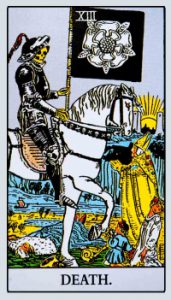
The Death card is symbolized by the number 13. The number 1 represents the masculine, active principle—symbolizing seed, beginning, creation, originality, initiative, energy, and determination. People associated with the number 1 are leaders, pioneers, ambitious, determined, independent. The number 3 represents imagination, broad-mindedness, talent, enthusiasm, and optimism. In the number 13, there are two masculine numbers that set the tone: the 1 brings assertiveness, directive qualities, individuality, and creativity, while the 3 contributes self-expression, learning ability, and focus. Together, they form the number 4, which symbolizes practicality and domesticity, providing the 1 and 3 with structure and discipline, and requiring efficient work and responsibility. As with the Death card, change will come through discipline and hard work. The masculine energy helps the person emerge from the state of decay caused by death, while the childlike energy brings the ability to learn and focus to reach a new place.
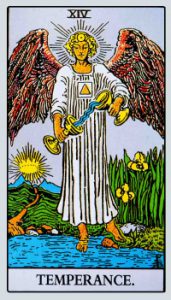
The Temperance card is symbolized by the number 14. The number 1 represents the masculine, active principle—symbolizing seed, beginning, creation, originality, initiative, energy, and determination. People associated with the number 1 are leaders, pioneers, ambitious, determined, and independent. The number 4 represents individuals who are focused on home and family, practical, realistic, analytical, balanced, and disciplined, with a high degree of patience, tolerance, and attention to detail. The combination of these two numbers results in the number 5, which symbolizes adaptability, adjustment, communication, mental flexibility, movement, and integration of abilities. The blend of the innovative ideas of 1 and the execution skills of 4 makes the number 14 a number of change.
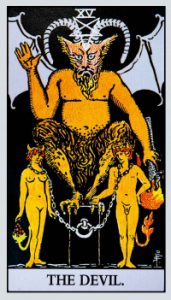
The Devil card is symbolized by the number 15. The number 1 represents the masculine, active principle—symbolizing seed, beginning, creation, originality, initiative, energy, and determination. People associated with the number 1 have the potential to be leaders, pioneers, ambitious, determined, and independent. The number 5 represents adaptability, adjustment, communication, mental flexibility, movement, a sense of commerce, a love for freedom, and constant restlessness. Together, they form the number 15, which has the ability to both empower and weaken equally. To achieve the love symbolized by the number 6 (the combination of 1 and 5), a person must acknowledge their ego but not let it control them. They must recognize the need for freedom and change but create these within the existing framework of their life. This requires self-control, mastery over impulses, and responsibility.
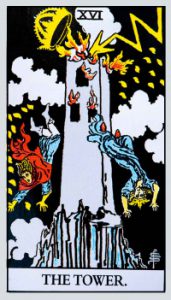
The Tower card is symbolized by the number 16. The number 1 represents the masculine, active principle—symbolizing seed, beginning, creation, originality, initiative, energy, and determination. People associated with the number 1 are leaders, pioneers, ambitious, determined, and independent. The number 1 combined with the number 6 seeks completeness, unity, and harmony. People associated with the number 6 are talented, stable, helpful to others, and love home and family. The number 6 represents unity, aesthetics, symmetry, and coordination. The number 7 (a combination of 1 and 6) represents individuals who are full of faith, wisdom, thoughtful analysis, analytical ability, loyalty, and stability. They seek truth, have intuition, and imagination. Thus, people associated with the number 16 have the potential to bring about extreme changes. The number 16 governs accidents and expresses responsibility towards family while paying attention to details.
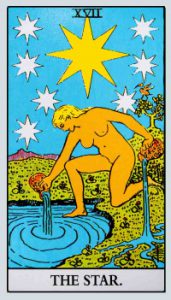
The Star card is symbolized by the number 17.
The number 1 represents the masculine, active principle—symbolizing seed, beginning, creation, originality, initiative, energy, and determination. People associated with the number 1 are leaders, pioneers, ambitious, creative, determined, and independent. The number 7 represents individuals who are full of faith, wisdom, thoughtful analysis, analytical ability, loyalty, and stability. They seek truth, and have intuition and imagination. The combination of 1 and 7 forms the number 8, which embodies the principle of eternity, the continuity of life, and the maturation reflected in the harvest of what has been sown. People associated with the number 8 are home-loving, organized, extreme in behavior, consistent, practical, and possess inner strength. They achieve their goals, are efficient, competitive, knowledgeable, and capable of investing and managing businesses. They are deep, patient, and take responsibility. The combination of 1, 7, and 8 forms the number 17, which brings hope, faith, and love, and signifies inner light indicating mental strength. This number denotes positive karma and fortune resulting from spiritual development in past lives. It is important for those associated with this number to heed their intuition.
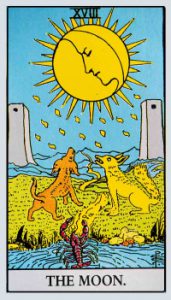
The Moon card is symbolized by the number 18. The number 1 represents the masculine, active principle—symbolizing seed, beginning, creation, originality, initiative, energy, and determination. People associated with the number 1 are leaders, pioneers, ambitious, determined, and independent. The number 8 embodies the principle of eternity, continuity of life, and maturation, reflected in the harvest of what has been sown. People associated with the number 8 are home-loving, organized, extreme in behavior, consistent, practical, and possess inner strength. They take responsibility, achieve their goals, and are efficient, competitive, and deep with patience. The combination of 1 and 8 results in 9, which symbolizes power, life energy, action, enthusiasm, fulfillment, and achievements. People associated with the number 9 are filled with universal love, generosity, justice, and volunteerism. They are imaginative, confident, dynamic, and kind. They feel a need to dedicate themselves to serving others, and the power of the subconscious drives them to decipher it for achieving their goals. The number 18 incorporates strength, power, and leadership.
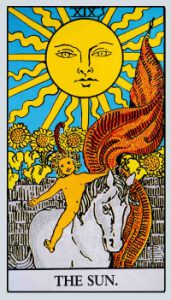
The Sun card is symbolized by the number 19. The number 1 represents the masculine, active principle—symbolizing seed, beginning, creation, originality, initiative, energy, and determination. People associated with the number 1 are leaders, pioneers, ambitious, determined, and independent. The number 9 signifies power, life energy, action, enthusiasm, fulfillment, and achievements. People associated with the number 9 are filled with universal love, generosity, justice, and volunteerism. They are imaginative, confident, dynamic, and kind, feeling a need to dedicate themselves to serving others. The combination of 1 and 9 results in the number 19, which encompasses all worlds and cosmic knowledge. It represents the beginning and the end, achieving completeness while maintaining personal individuality. This number signifies spiritual and emotional renewal, ensuring success, honor, and the realization of plans.
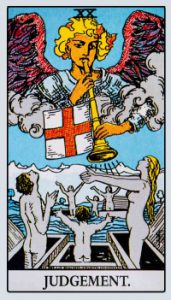
The Judgment card is symbolized by the number 20. The number 2 represents duality, opposites, and balance. It is negative, passive, feminine, and balancing. People associated with the number 2 have persuasive abilities, excel in teamwork, are sensitive, imaginative, and diplomatic. They are intuitive, nurturing, and attentive. Adding the number 0 to 2 amplifies its qualities, enhancing its sensitivity and allowing it to reach a higher state of consciousness. The number 20 reflects a profound sense of awakening and realization, highlighting a transformative phase where individuals achieve a deeper understanding and clarity.
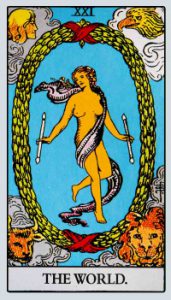
The World card is symbolized by the number 21. The number 2 represents duality, opposites, and balance. It is negative, passive, feminine, and balancing. People associated with the number 2 have persuasive abilities, excel in teamwork, are sensitive, imaginative, and diplomatic. They are intuitive, nurturing, and attentive. The number 1 represents the masculine principle, active and symbolizing seed and beginnings. It stands for creation, initiative, vitality, and determination, and embodies leadership and pioneering qualities. People associated with the number 1 are ambitious, resolute, independent, and leaders. The number 21 combines these aspects, with the number 2 drawing on the qualities of the number 1. Thus, individuals represented by the number 21 can lead effectively while understanding and incorporating others' perspectives.
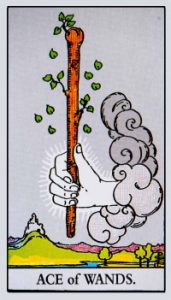 |
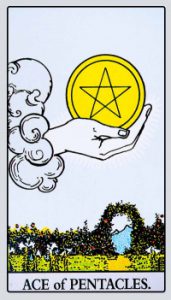 |
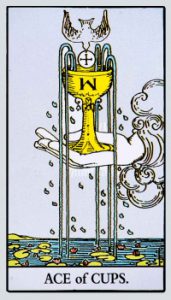 |
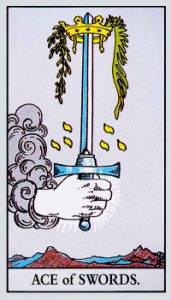 |
The Ace cards are symbolized by the number 1. The number 1 represents the masculine principle, active and akin to the sun that gives life. It is a symbol of divinity, creation, beginnings, individuality, renewal, originality, initiative, vitality, determination, choice, objectivity, leadership ability, independence, organization, and management. People associated with the number 1 are natural leaders who pursue their goals with all available means. They are characterized by their ideas and ambition, being pioneers and resolute, honest, direct, and project-oriented.
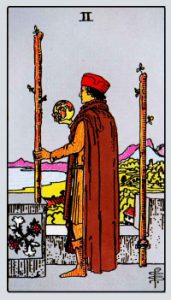 |
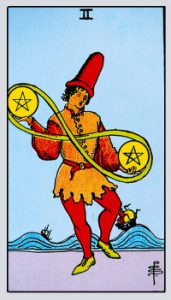 |
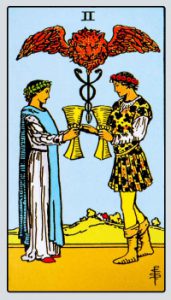 |
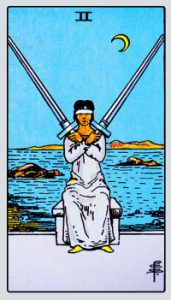 |
The Two cards symbolize the opposites, the duality of life, and the ability to see both sides of the coin. The number 2 represents the moon and embodies qualities that are negative, passive, and feminine. It encompasses conflict, opposition, continuity, instability, dependency, and duality. If the number 1 represents the masculine force or potential, then the number 2 represents the feminine aspect, the vessel through which this potential is realized. The feminine role involves filtering, improving, refining, containing, and listening. Psychologically, the number 2 symbolizes the subconscious, a repository of emotions, thoughts, and past experiences. The subconscious absorbs the world through the five senses and intuition. People associated with the number 2 are intuitive, sensitive, accommodating, attentive, and nurturing. They excel in teamwork and partnerships because they understand how to be number 2. They are imaginative, persuasive, diplomatic, and capable of executing others' ideas. They enjoy social interaction and are adept at adapting to others, seeking common ground and trust. Like Mother Earth, who receives sunlight but creates her own creations, they see both details and the whole. Due to their ability to perceive imbalance around them, they can be prone to criticism. They should be cautious of being overly accommodating, shy, and irresponsible. They may also be dreamers influenced by the moon, easily disappointed and vulnerable.
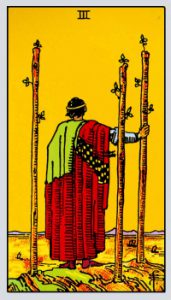 |
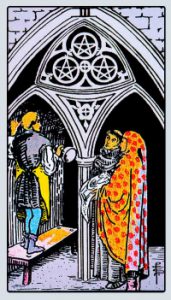 |
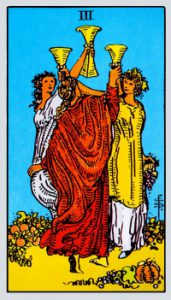 |
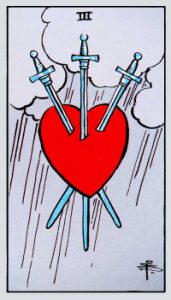 |
The Three cards symbolize the child. The number 1 represents the father, 2 the mother, and 3 the child. People associated with the number 3 have a vivid imagination, generosity, talent, enthusiasm, and optimism. They are individuals who have not forgotten the child within them. They are sociable, sympathetic, and have a high level of internal sensitivity. They tend to be impatient with trivial matters and are destined for roles of service and helping others, particularly in healing and encouragement. They value integrity, honesty, and often excel academically, holding degrees and qualifications. In situations of imbalance, their optimism can give way to doubt, and their joy of life can turn into depression. They may also become scattered and intolerant when they are not aligned.
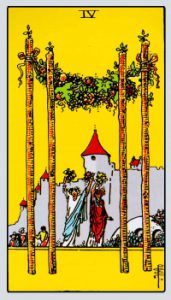 |
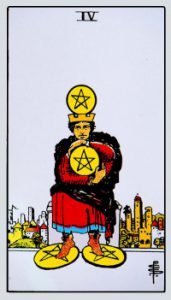 |
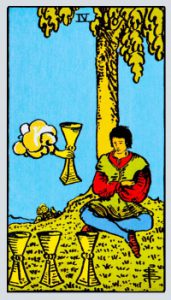 |
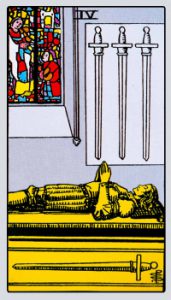 |
The Four cards are represented by the number 4, which symbolizes connection to the earth and home. These cards represent balanced individuals, people focused on family and home, practical, realistic, and dedicated to their work. They are orderly, disciplined, and attentive to details. They value material stability and exhibit great patience, tolerance, and self-discipline. People associated with the number 4 are analytical, preferring to build from the ground up in an orderly manner. They are successful in fields such as commerce, industry, and construction. However, they should be cautious of being too slow due to excessive thoroughness, stubbornness, inflexibility, difficulty adapting, rigidity, and critical tendencies.
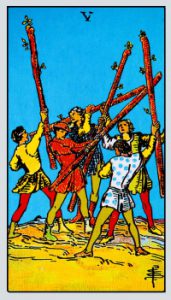 |
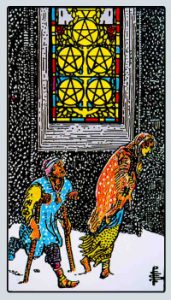 |
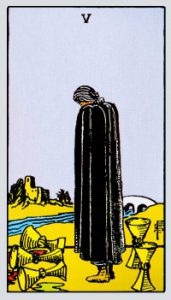 |
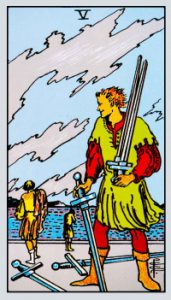 |
The Five cards are represented by the number 5. After the man, woman, and child have settled into their home and secured their livelihood, it is time to seek freedom and explore. The geometric shape associated with the number 5 is the pentagram—a five-pointed star. This shape symbolizes a person standing with two feet on the ground and head in the sky, representing control over material and instinctual desires, though if the head is pointing downward, the instincts may overpower. The number 5 represents sexuality, life, and vitality. These cards symbolize individuals with analytical skills, discernment, and critical thinking. They possess mental flexibility and value rhetoric and written word. People associated with the number 5 have a strong desire for knowledge, frequent changes, and are driven by a need for freedom and constant movement. They are initiators and adventure seekers, capable of multitasking and displaying a strong sense of sexuality. However, individuals represented by the number 5 should be cautious of gambling, irresponsibility, impulsiveness, deceit, and superficiality. Their restless nature may lead to jumping from one topic to another without proper examination or depth.
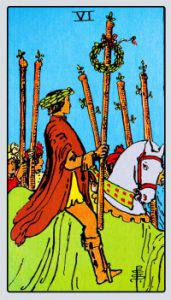 |
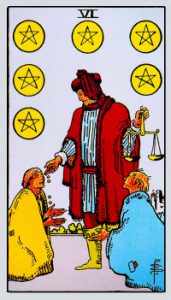 |
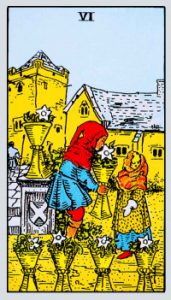 |
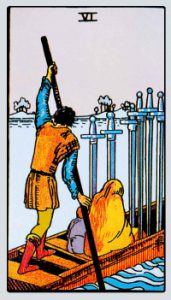 |
The Six cards are represented by the number 6, symbolized by the Star of David—a symbol of perfect balance with two interlocking triangles. This number signifies the combination of masculine strength and determination with feminine softness and persuasion, representing the unity between material and spiritual realms, and is known as the number of creation. The number 6 indicates unity, aesthetics, symmetry, and coordination. Individuals associated with this number are often talented, stable, and helpful, with a strong affinity for home and family. They value trustworthiness and social relationships, maintaining their individuality while striving for justice, completeness, and harmony. They are loyal, romantic, and often have a deep appreciation for music and art. However, people represented by the number 6 should be wary of indecisiveness, difficulty in making decisions, arrogance, and dramatizing problems.
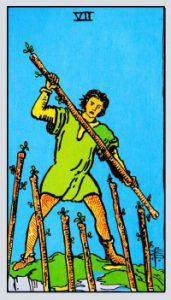 |
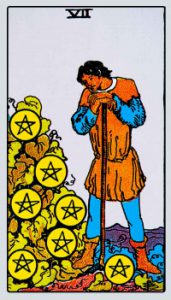 |
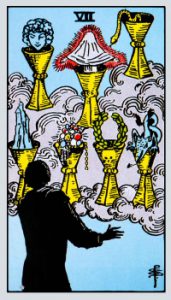 |
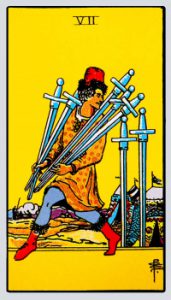 |
The Seven cards symbolize spiritual life. After an individual has achieved stability in their home, family, and love, they are ready to focus on spiritual matters. The number 7 signifies the triumph of the spirit over material concerns, completeness, skill, and victory, reflecting depth. It is a number associated with inner reflection and meditation, and unity with the divine. People associated with the number 7 are filled with faith, wisdom, and the ability to think deeply and analytically. They prefer to work alone, valuing their privacy and maintaining strong boundaries between themselves and others. They are refined, shy, and connect slowly, but they are loyal and stable. Individuals with this number are drawn to nature, esoteric teachings, and seek truth through philosophy, religion, and research. They possess intuition and imagination, are easily excited, worry often, and prioritize developing their inner self. Those represented by the number 7 should be cautious of depression, mood swings, difficulty in distinguishing and understanding reality, irritability, fear of failure, and building emotional walls.
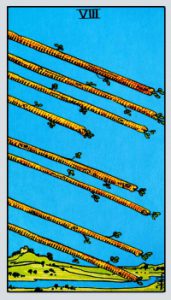 |
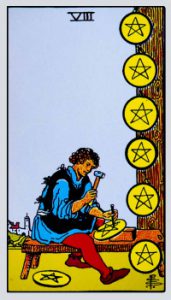 |
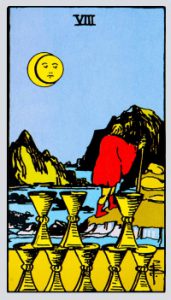 |
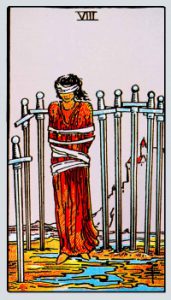 |
The Eight cards are represented by a geometric shape that symbolizes infinity, with its spiral, continuous movement. The number 8 signifies cosmic balance, equilibrium, evolution, and personal growth. The figure 8 consists of two circles: the lower circle symbolizes material, while the upper circle symbolizes spirit, both representing death and eternity. The number reflects extremes between freedom and spiritual or material limitations, science, achievement, and significant responsibility. People associated with the number 8 are aware of their limitations and the obstacles they face; they reap what they have sown. They are home-loving, organized, extreme in their behavior, consistent and practical, with inner strength that helps them achieve their goals. They are efficient, competitive, knowledgeable, and capable of investing in and managing businesses, with depth, patience, and responsibility. Those represented by the number 8 must learn to balance material and spiritual aspects. They should be cautious of forcefulness, proceeding without regard for their steps, and remember that the end does not justify the means. They need to learn not to be obstinate and to practice forgiveness.
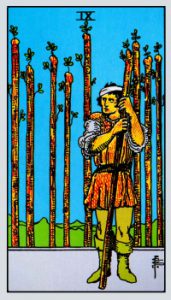 |
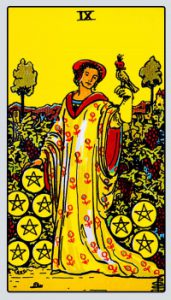 |
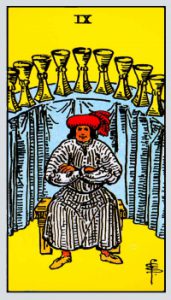 |
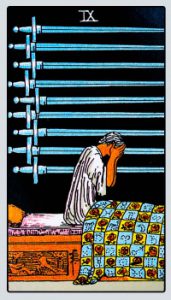 |
The Nine cards represent a perfect image of all worlds: material, emotional, and spiritual. The number 9 is a symbol of power, representing enlightenment, life energy, action, enthusiasm, manifestation, and achievements. People associated with the number 9 are filled with universal love, generosity, justice, dynamism, and volunteerism. They are imaginative, kind, feel the need to dedicate themselves to serving others, and possess self-confidence. They should be cautious of a lack of self-control, outbursts, misuse of power, and must ensure to complete tasks. In challenging situations, they need to detach from their emotions and listen to the voice of reason.
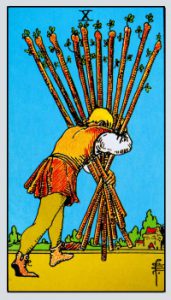 |
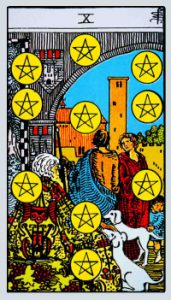 |
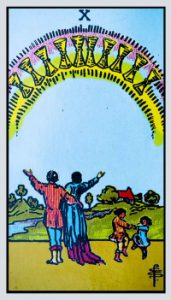 |
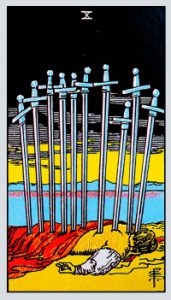 |
The Ten cards incorporate the number 1, which symbolizes the masculine, active principle, representing seed and beginnings, creation, primacy, initiative, energy, and determination. Those associated with the number 1 are leaders, pioneers, ambitious, determined, and independent. The zero added to the one amplifies all the traits of the number 1. The number 10 symbolizes a return to unity and represents spiritual achievements. It combines the masculine seed (1) with the feminine egg (0), which together create completeness. After reaching the number 9, the cycle concludes, and a new phase begins, but at a higher level and with increased power.
The Court Cards, which consist of sixteen cards from the Minor Arcana, are not represented by numbers but are explained through astrology. They are divided into twelve cards representing the Prince, Queen, and King, with each suit—Wands, Pentacles, Cups, and Swords—having one of each of these cards. Each card corresponds to one of the zodiac signs and represents the opportunities that arise in the querent's life. The four Knight cards signify stages of maturation.
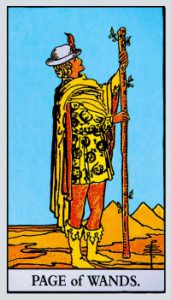 |
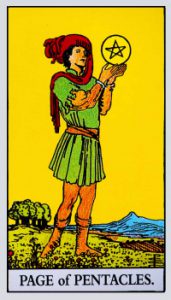 |
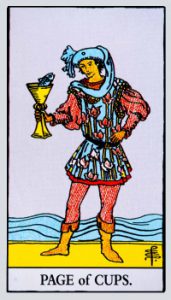 |
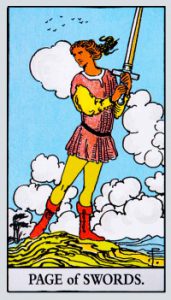 |
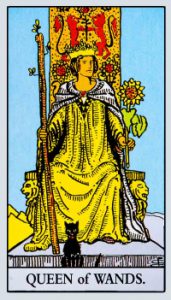 |
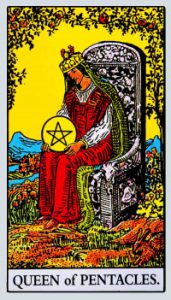 |
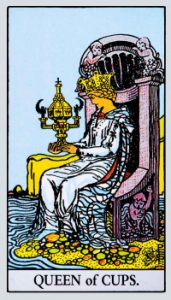 |
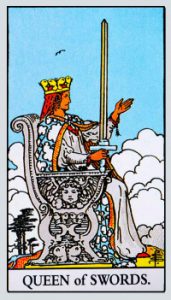 |
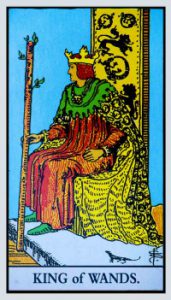 |
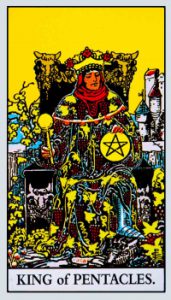 |
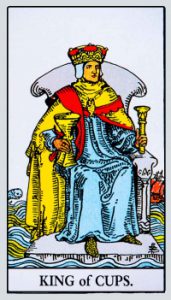 |
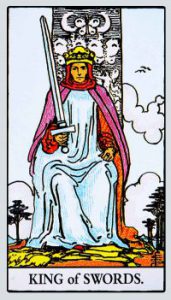 |
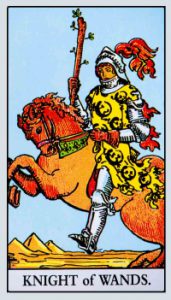 |
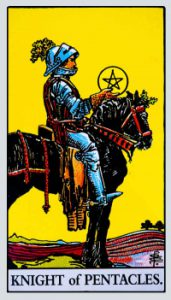 |
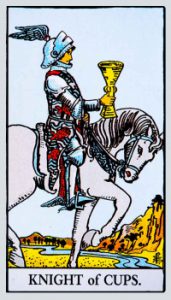 |
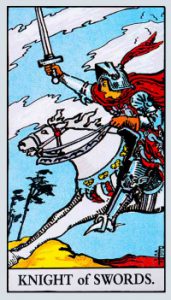 |
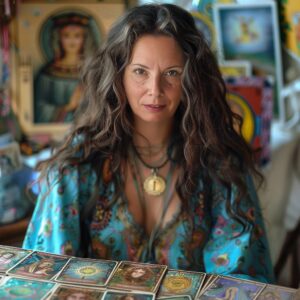
Orit Raphael, Tarot Reader for Personal Guidance, Insights, and Messages